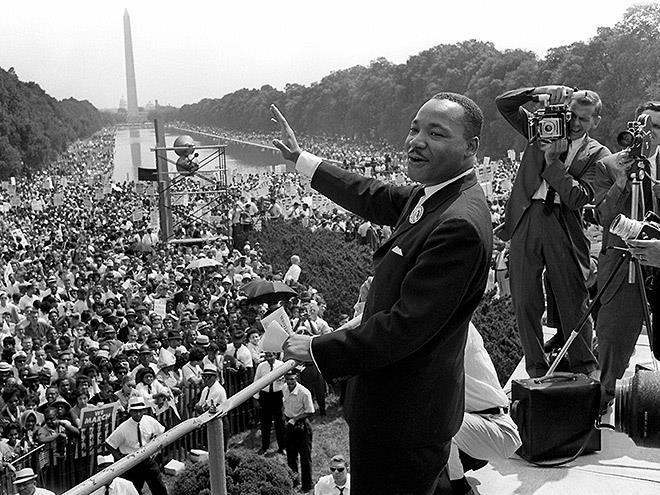Martin Luther King Jr. Day: A Celebration of Equality and Justice
Americans honor the legacy of Dr. Martin Luther King Jr. every third Monday in January. King was a towering figure in the fight for civil rights and social justice. Martin Luther King Jr. Day, a federal holiday since 1986. The day only commemorates his life and achievements but also serves as a reminder of the ongoing struggle for equality.
The History of Martin Luther King Jr. Day
The journey to establish Martin Luther King Jr. Day as a federal holiday was long and contentious. Following King’s assassination in 1968, Congressman John Conyers introduced a bill to make his birthday, January 15, a national holiday. However, it faced resistance from lawmakers who questioned the need for another federal holiday.
The campaign gained momentum in the 1980s, thanks to tireless advocacy from civil rights leaders, unions, and celebrities. Stevie Wonder released the song “Happy Birthday” to promote the cause. In 1983, President Ronald Reagan signed the holiday into law. This designated it as a day to honor King’s contributions to American society. The holiday was first observed on January 20, 1986, and over the years, all 50 states eventually adopted it.
Highlights of King’s Civil Rights Movement
Dr. Martin Luther King Jr. was a Baptist minister and social activist who became the face of the American civil rights movement. He rose to prominence in the mid-1950s, advocating for nonviolent resistance to racial segregation and injustice. Here are just a few key milestones of his activism were.
The Montgomery Bus Boycott (1955-1956). On December 1, 1955, a great moment in American history occurred when Rosa Park refused to give up her bus seat in Montgomery, Alabama, to a white passenger. At the time, the segregation laws prevalent in the Jim Crow South. It required African Americans to stand and give their seats to white passengers if a bus was crowded. Rosa Parks refused to do so, which resulted in her arrest. This led to a year-long bus boycott, a pivotal moment in the historical fight against segregation. King emerged as a national leader during this campaign, emphasizing the power of peaceful protest.
The March on Washington (1963). On August 28, 1963, King delivered his iconic “I Have a Dream” speech to over 250,000 people gathered at the Lincoln Memorial. The speech articulated his vision of a racially integrated and equitable society. It solidified his role as a moral leader of the movement. Some memorable quotes from the speech follow.
Key Quotes from King’s I Have a Dream Speech
“I have a dream that my four little children will one day live in a nation where they will not be judged by the color of their skin but by the content of their character.”
“I have a dream that one day this nation will rise up and live out the true meaning of its creed: ‘We hold these truths to be self-evident, that all men are created equal.”
“I have a dream that one day on the red hills of Georgia the sons of former slaves and the sons of former slave-owners will be able to sit down together at a table of brotherhood.”
“Let us not seek to satisfy our thirst for freedom by drinking from the cup of bitterness and hatred.”
“Darkness cannot drive out darkness; only light can do that. Hate cannot drive out hate; only love can do that.”
You can read and listen to the original audio of this iconic American speech here.
The Civil Rights Act of 1964. King’s efforts played a significant role in the passage of this landmark legislation. This legislation outlawed segregation in public places and banned employment discrimination.
The Voting Rights Act of 1965. Following events like the Selma to Montgomery marches, King’s advocacy led to this transformative law. This legislation aimed to eliminate barriers preventing African Americans from voting.
Through these and countless other efforts, King helped dismantle institutional racism and inspired millions to join the fight for justice.
The Assassination of Martin Luther King Jr.
On April 4, 1968, King was assassinated at the Lorraine Motel in Memphis, Tennessee. He was in Memphis to support striking sanitation workers and continue his campaign for economic justice. The assassination sent shockwaves across the nation, sparking riots in over 100 cities and galvanizing the civil rights movement.
James Earl Ray, a fugitive, was arrested and convicted of King’s murder, though controversies and conspiracy theories about the circumstances of King’s death persist to this day. His assassination underscored the deep divisions in American society and intensified efforts to realize his dream of equality.
The Road to a Federal Holiday
Making Martin Luther King Jr. Day a federal holiday required decades of advocacy. Coretta Scott King, his widow, was instrumental in championing the cause, as were countless grassroots organizations. Congress eventually passed the holiday legislation in 1983, and it was observed for the first time in 1986. However, it wasn’t until the year 2000 that all 50 states officially recognized the holiday.
Today, Martin Luther King Jr. Day is more than a day off work or school; it is a day of reflection, education, and community service. It is a reminder of the legacy of one of America’s original sins. It asks Americans to consider that the struggle to realize the ideals of the United States for all of its people continues. Many Americans participate in acts of volunteerism, embracing the spirit of King’s message that “life’s most persistent and urgent question is, ‘What are you doing for others?’”
Continuing the Legacy
While Martin Luther King Jr. Day honors his achievements, it also calls on us to continue the work he began. Issues like systemic racism, voter suppression, and economic inequality persist, reminding us that the fight for justice is far from over.
Dr. King’s life and legacy remain a beacon of hope and a call to action. As we celebrate his contributions each year, we remember that the power of courage, compassion, and collective action can transform society for the better.
Get on the road to better English with the Language Garage!
We hope you’ve enjoyed learning about the history and significance of Martin Luther King Jr. Day in the United States. If you’re interested in ESL/EFL lessons, please check out our English courses. We have private lessons, lessons for you and a friend or colleague, or small groups. Or see our other posts on English grammar, vocabulary, and more.
Image Source Wikimedia Commons






